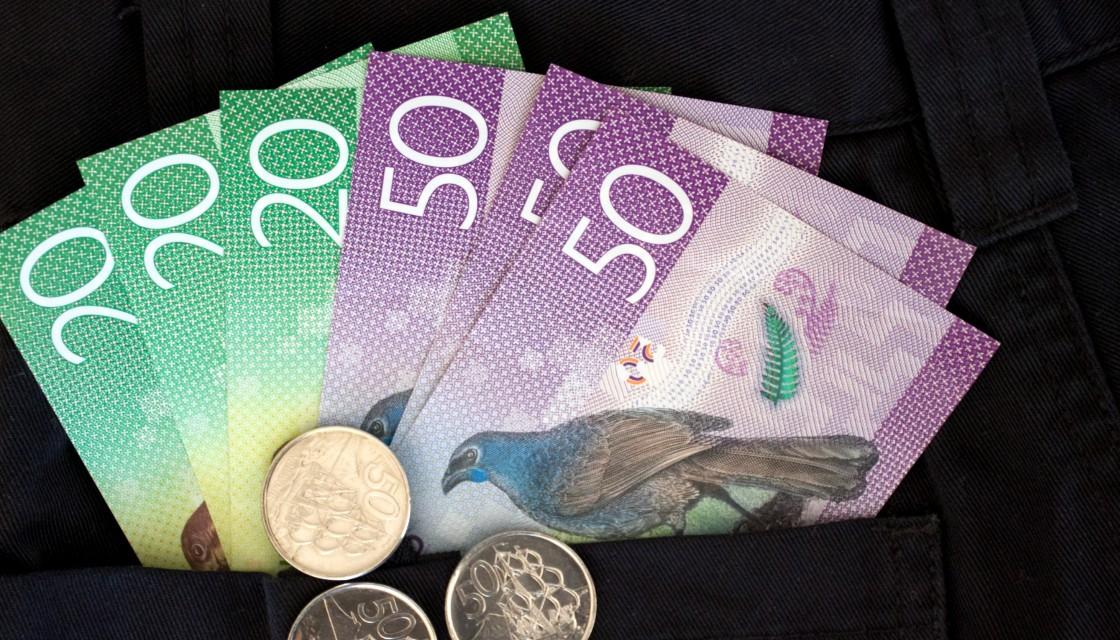
Pay rise: they're two words that have received scant attention during the COVID-19 pandemic.
But as the economy heads further into recovery and demand for skills increases, that’s changing, a leading recruiter says. Economists say unemployment, currently 4.7 percent, is likely to have peaked. Gross Domestic Product (GDP) increased by 1.6 percent over the March 2021 quarter. Latest Trade Me Jobs data indicates it’s a good time to change in employment or ask for a pay rise, SEEK May data also showing jobs ads up by a quarter compared to May 2019.
And there’s some good news for employees intending to stay put.
According to a Hays Recruitment 2021/2022 salary guide which surveyed over 3000 employees and employers in June, around three-quarters of New Zealand employers intend to offer pay rises at their next review.
But there’s a gap between the pay increase employers expect to offer - and what employees expect to receive.
Just over half of employers surveyed (55 percent) indicated they’d offer staff a pay rise of up to 3 percent. On the average gross weekly wage of $1301.22*, a 3 percent rise would represent an extra $39.03 (before tax) in the back pocket.
Employees think they’re worth more than that: almost three quarters (72 percent), said a pay rise of 3 percent or more would reflect their performance over the last year.
"While employers are more confident and are now looking to increase salaries, it might not be as much as people hoped for," Adam Shapley, managing director of recruiting experts at Hays New Zealand said.
As pay rise discussions can be delicate particularly coming out of COVID-19, Newshub asked leaders at two recruitment companies how employees can prepare.
1. Get evidence of your achievements
The first step is to start a list of recent achievements - and the benefits to your employer.
Adam Shapley, managing director of recruiting experts at Hays New Zealand says employees who can prove why they deserve a pay rise will improve their chances of getting one.
"Focus on outcomes with specific and quantifiable evidence, e.g. perhaps you’re managing a 25 percent increase in the volume of work [output], or were involved in a project that exceeded objectives," Shapley said.
For LinkedIn users, Customise Talent Group partner Rose-Marie Nathan suggests thinking of co-workers and/or clients who you've worked alongside or on projects with, and asking them to give a recommendation.
"I recommend putting an outline together of what you'd like to highlight that's relevant to the person that's going to write it for you," Nathan suggests.
Many companies have a set of values. Nathan suggests being clear about what they are and noting how you're delivering against them - even if they aren't part of your day-to-day job.
2. Know what you’re worth elsewhere
Use job websites and salary guides to check what other employers are offering for jobs at a similar level.
"This enables you to back up your request with evidence and demonstrate that the salary you’re asking for is in line with current market rates," Shapley said.
Nathan said it’s important to understand if there’s a gap between current pay and the rest of the market. Some companies have 'salary bands' for a particular job. It's worth checking them, so you're aware of what potential pay could be.
"Work out what increase you’re looking for...this is a negotiation, so you need to research your worth," Nathan said.
3. Be prepared to negotiate
A pay rise discussion involves negotiation - one or both parties may need to compromise.
"It can help to have an ideal salary increase figure in mind, as well as the minimum increase you feel your results are worth," Shapley said.
He also suggests having a contingency plan if the discussion doesn’t go as planned, such as where an employer says they can’t offer a salary increase right now.
"For example, can you agree [on] a date for another pay review in three or six months...could your boss offer additional benefits, such as working from home additional days per week, paying for study or membership, or provide you with extra annual leave,?" Shapley said.
Nathan suggests entering a pay negotiation with three numbers: an 'aspirational' number, an 'ideal' number and a 'bottom dollar'. The conversation may take more than one meeting.
"It's really about understanding the value[s] so you can have the conversation with confidence, Nathan said.
"Don't overexplain it...deliver what you think and why and take in the feedback."
Many companies have a set time for pay reviews. Often, they're part of their annual review process, timed at the end of the company's financial year (e.g. March or December).
Before initiating a pay rise discussion, employees are wise to check the process first. There may be an opportunity to broach the topic of a pay rise at a one-on-one meeting, before the formal review process, to discuss a timeframe.
And it’s also good to remember it’s not just about money: many employers offer staff benefits and opportunities to upskill. So if they’re unable to offer a pay rise now, there may be other good reasons to stick around.
*Statistics New Zealand quarterly employment survey, March 2021.


